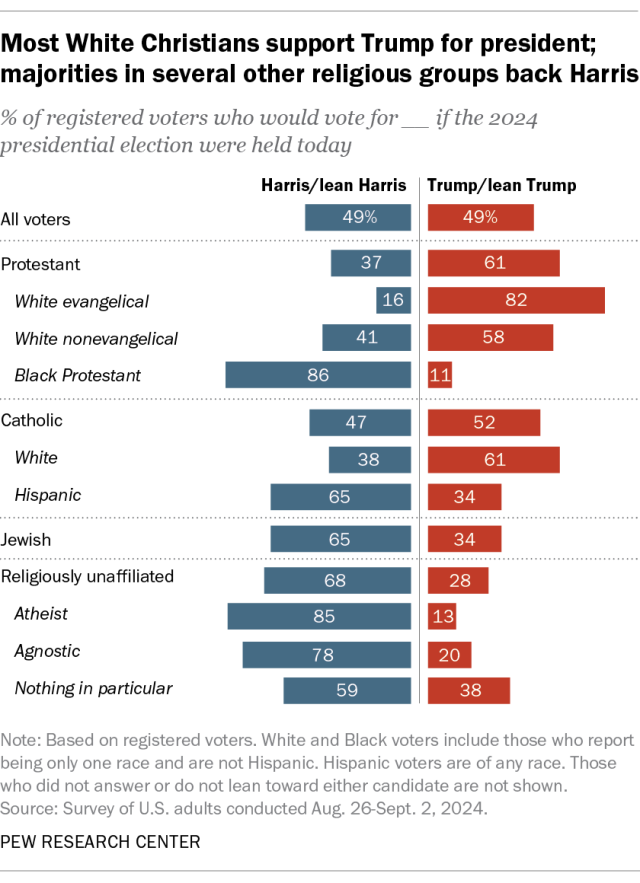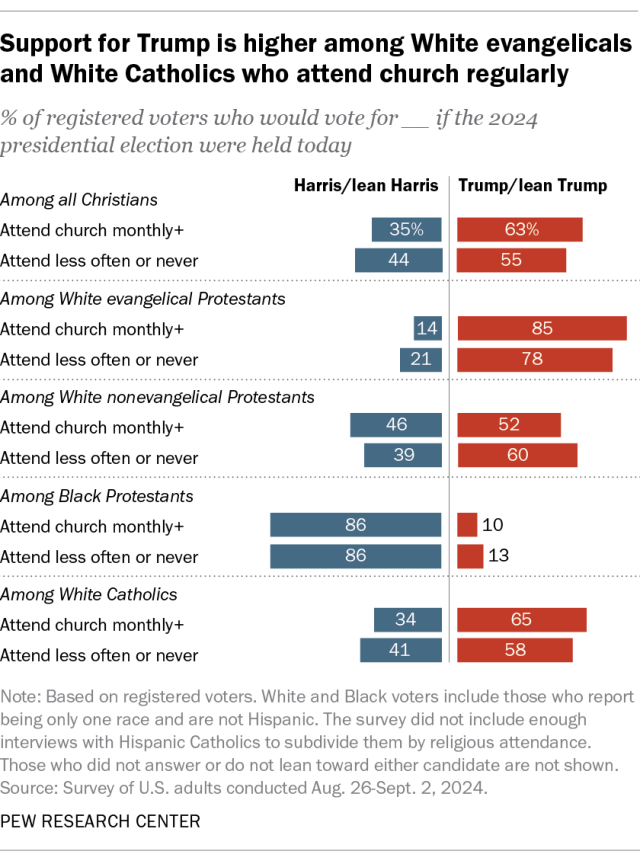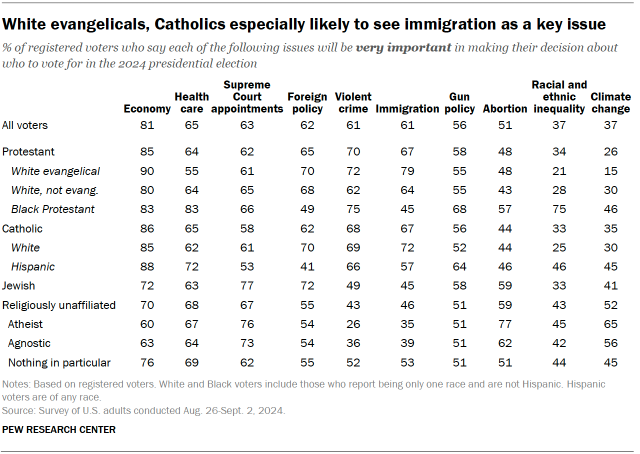(ZENIT News / Rome, 13.09.2024).- As the crucial presidential election approaches in the United States, religious affiliations are playing a fundamental role in voters’ inclination. Two large religious blocs are emerging with clear support for the main contenders: Donald Trump and Kamala Harris. According to a recent Pew Research Center poll, published on September 9, religious preferences, far from being a mere social indicator, have become a direct reflection of the political division in the country.

Trump Has The Strong Support of Evangelicals
Former President Donald Trump continues to be favoured among conservative religious voters. An overwhelming 82% of white Protestant Evangelicals have expressed their intention to support him if the elections were held today. This group, historically aligned with the Republican Party, reinforces once again its support of Trump, who has based a great part of his campaign on topics that resonate with their values, such as the control of immigration and the appointment of Supreme Court Justices.
White Catholics have also kept faithful to Trump, with 61% favouring him, and 58% of non-Evangelical white Protestants follow the same tendency. However, there is a notable difference within these groups according to the frequency of their church attendance: those that participate actively in religious services show greater support for Trump, compared with those that don’t attend church regularly.
Kamala Harris and the Support of Religious Minorities
On the other hand, Kamala Harris, who is leading the Democrats after Joe Biden’s withdrawal from the race, enjoys solid support among various religious groups that traditionally favour the Democrats. Harris has been able to attract crucial voters, such as black Protestants (86%) atheists (85%) and agnostics (78%), consolidating a diverse and progressive base.
Of particular interest is the increase in support for Harris among Hispanic Catholics, a group that, although it was divided during the Biden Administration, now gives 65% of support to the Democratic candidate. This increase reflects an important change in the electoral dynamic, especially at a time when the Hispanic vote is ever more decisive in the national results

Key Topics for Religious Voters
Religion not only influences in a preferred candidate, but also in the priorities that voters consider key in the campaign. The Pew survey reveals that, without considering religious affiliation, topics such as the economy and health care occupy a prominent place in voters’ mind. However, the focus varies considerably among the different groups.
Among white Evangelicals, immigration is a crucial topic, with 79% stating that it will be a determinant factor in their decision to vote. This position contrasts with that of atheists and agnostic, for whom abortion is a fundamental topic. 77% of atheists and 62% of agnostics see in the abortion policy a decisive element for their vote, which reinforces the ideological gap between religious and non-religious voters.
Perspective on the Electoral Race
As the Fall elections approach, the dynamic between religions and politics continues to be a reflection of the polarization that is defining American society. The Republicans, headed by Trump, have succeeded in consolidating the support of conservative religious voters, whereas Harris has strengthened her support among more diverse and progressive groups.
The 2024 presidential campaign seems to be destined once again to be a contest where religion, far from being a purely spiritual matter, is playing a decisive role in the political future of the United States.




